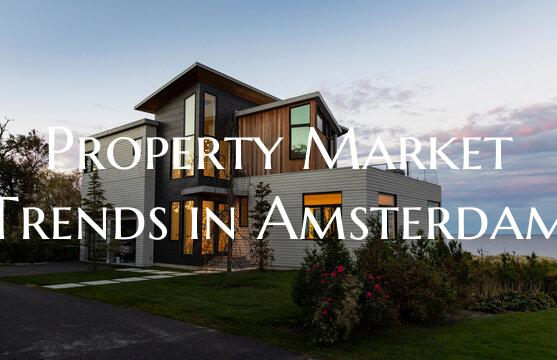Property Market Trends in Amsterdam

Introduction: Amsterdam, the vibrant capital city of the Netherlands, offers a diverse and dynamic real estate market that has been experiencing notable trends in recent years. This article delves into the current property market scenario in Amsterdam, highlighting key trends and factors influencing the buying, selling, and renting of real estate in this picturesque city.
1. Rising Property Prices: Amsterdam's real estate market has seen a consistent rise in property prices in recent years. Factors such as high demand, limited housing supply, and attractive lifestyle offerings have contributed to this trend. The city's popularity among foreign investors and expatriates has also played a significant role in driving up property prices, particularly in prime locations like the Canal Ring and De Pijp.
2. Focus on Sustainability: Amsterdam has a strong focus on sustainability and green initiatives, which is reflected in the city's real estate market trends. There is a growing demand for eco-friendly and energy-efficient properties, with developers incorporating sustainable features such as solar panels, green roofs, and energy-efficient appliances to attract environmentally conscious buyers.
3. Shift towards Rental Market: The rental market in Amsterdam has been gaining momentum, especially among younger demographics and expats who prefer the flexibility of renting over owning a property. Rental prices have been on the rise, particularly in popular neighborhoods like Jordaan and Oud-West. The city's strict regulations on short-term rentals through platforms like Airbnb have also influenced the rental market dynamics.
4. Urban Regeneration Projects: Amsterdam is undergoing various urban regeneration projects to revitalize neighborhoods and create new residential opportunities. Areas like Amsterdam Noord and Zuidoost are witnessing revitalization efforts, attracting investors and homebuyers looking for affordable yet up-and-coming locations within the city.
5. Impact of COVID-19: The COVID-19 pandemic has had a noticeable impact on Amsterdam's property market trends. While the initial lockdown led to a temporary slowdown in transactions, the market has gradually rebounded as buyers seek homes that offer more space, outdoor amenities, and a conducive environment for remote work. The shift towards remote work has also influenced preferences for properties with home office spaces and high-speed internet connectivity.
Conclusion: In conclusion, Amsterdam's property market presents a dynamic landscape shaped by factors such as rising prices, sustainability initiatives, rental market growth, urban regeneration projects, and the impact of the COVID-19 pandemic. Whether you are a prospective buyer, seller, or investor, staying informed about these trends can help navigate the evolving real estate market in Amsterdam effectively.
